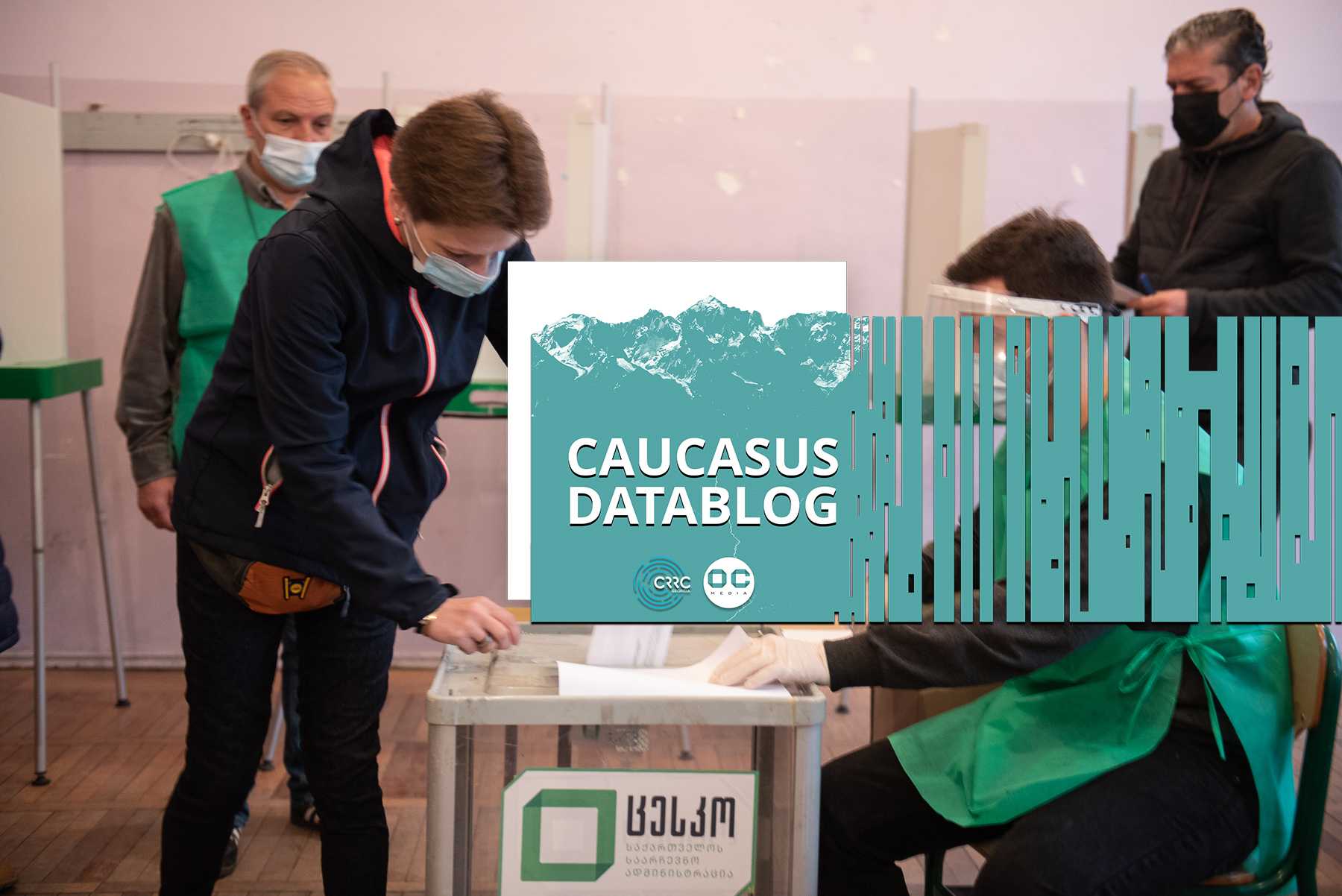Ex-PM Giorgi Gakharia vows to tackle corruption and nepotism with new party

Former Georgian Prime Minister Giorgi Gakharia has unveiled a new political party, ‘For Georgia’, ahead of October local elections.
In a closed event in the Expo Georgia centre on Saturday, Gakharia made several promises while also admitting that there were no promises ‘that had not been made’ in Georgian politics.
Gakharia, who less than seven months ago led the ruling Georgian Dream party to electoral victory, stepped down in February over disagreements with the party leadership.
A controversial figure due to police crackdowns on protests on ‘Gavrilovs night’ and in Pankisi, as well as a raid on Tbilisi nightclubs, Gakharia’s event was met with protests by critics outside the venue.
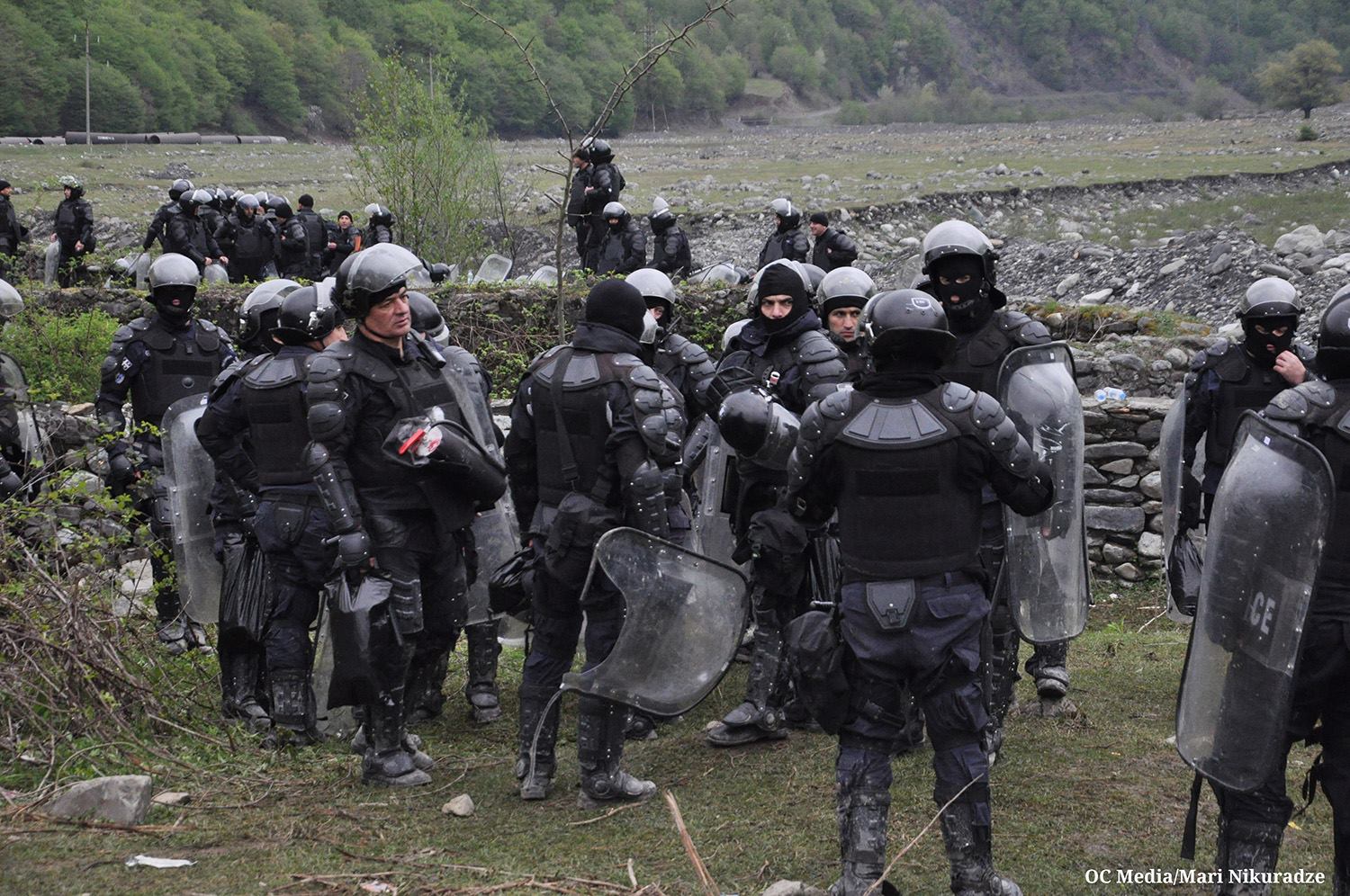
During the event, Gakharia named weak institutions as the biggest challenge facing the country and also vowed to tackle corruption and nepotism.
‘Today we unite for Georgia! We unite for Georgia but not against anyone!’, Gakharia said in his speech. He also promised that if elected, he would end the ‘tradition’ of destroying the achievements of previous governments.
Gakharia also touched on his resignation 100 days earlier. ‘I resigned because, after eight years in power, the ruling party compared their achievements with the reality of 10–15 years earlier… I resigned because the [Georgian Dream] party lost its focus on the real problems of our citizens for the simple reason — somehow fighting political opponents became a more important topic than solving the problems of our ordinary citizens.’
Gakharia presented several members of the party, mostly comprised of technocrats and former mid-level public officials. These included six sitting MPs who have defected from the ruling Georgian Dream Party, Giorgi Abashishvili, the former Chief of Staff and Economic adviser to fourth Georgian President Giorgi Margvelashvili, and Levan Dolidze, a former Ambassador to NATO.
Before being appointed PM last September, Gakharia, a Russian-educated former Lufthansa executive, served in various positions under billionaire Bidzina Ivanishvili’s Georgian Dream government. He was first Georgia’s Business Ombudsperson, then becoming chair of the Economic Council, Economy Minister, and later Interior Minister.
A slow migration from the ruling party
Gakharia resigned on 18 February citing his disagreement with other party officials over the planned arrest of Nika Melia, chair of the largest opposition party, the United National Movement (UNM).
Melia was arrested soon after Gakharia stepped down, only to be released 11 weeks later, on 10 May, as part of the EU-brokered deal between the government and opposition.
Despite being the fourth Georgian Dream PM to resign, Gakharia was the only one to go while publicly criticising the party.
Following over a month of silence, on 22 March Gakharia confirmed he had no intention to leave politics, which was followed by the defection of six MPs from Georgian Dream to his cause in April.
Throughout May, deputy mayors of Gori, Khashuri, Poti, Senaki, and Martvili municipalities, the Deputy Chair of Khulo Municipality, a Batumi council member, and the head of the Samegrelo-Zemo Svaneti State Representative’s Office resigned after allying with Gakharia.
Almost all of them claimed they were forced out because of their support for Gakharia, a claim not denied by Georgian Dream.
Shortly after Gakharia’s resignation in February, opposition-leaning channel TV Pirveli claimed that Deputy Interior Minister Kakhaber Sabanadze, was being surveilled by the authorities in his own office. Sabanadze, who was appointed by Gakharia in 2017 and is seen as a close ally of his, quickly resigned after the report calling for an investigation.
‘Gavrilov night’ protest crackdown
During his time in Government, Gakharia faced several protests calling for his resignation. As he unveiled his For Georgia party, the anti-government group of the same name, along with the Shetsvale group, and the youth wing of the opposition European Georgia party protested his political comeback outside the venue.
By the time Bidzina Ivanishvili announced Gakharia as Georgian Dream’s fifth Prime Minister in September 2019, he was already a controversial figure. As Interior Minister, he was condemned from some quarters for a police crackdown on anti-government protests 80 days earlier, on 20-21 June in Tbilisi.
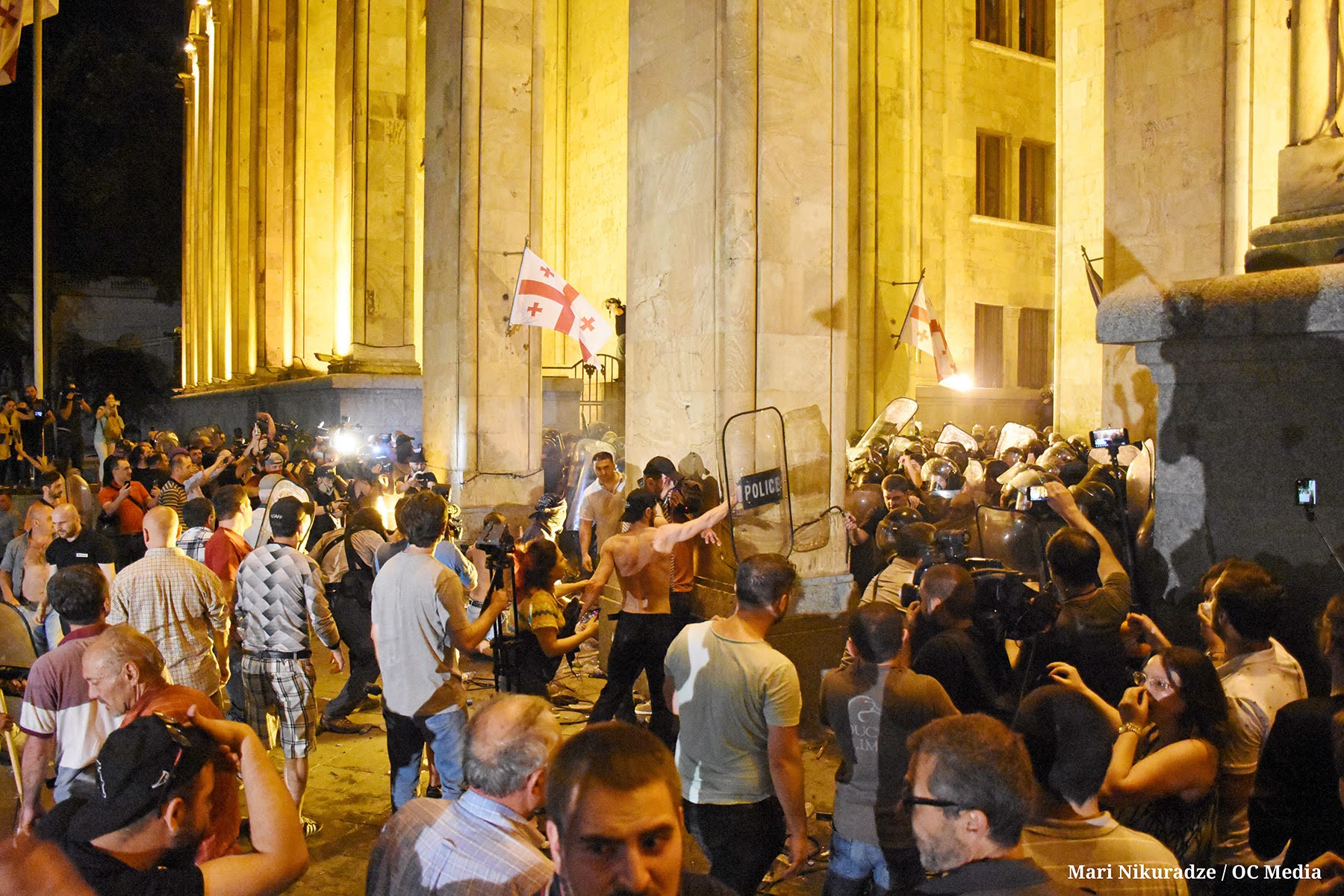
June’s protest was sparked by Russian MP Sergey Gavrilov being invited to address parliament from the speaker’s seat. The ensuing violence left 275 people injured, including 73 police officers.
His appointment was widely condemned by anti-government activists and opposition groups that waged a campaign against him, labelling him an ‘eye-gouger’ for several life-altering injuries that resulted in the protest dispersal.
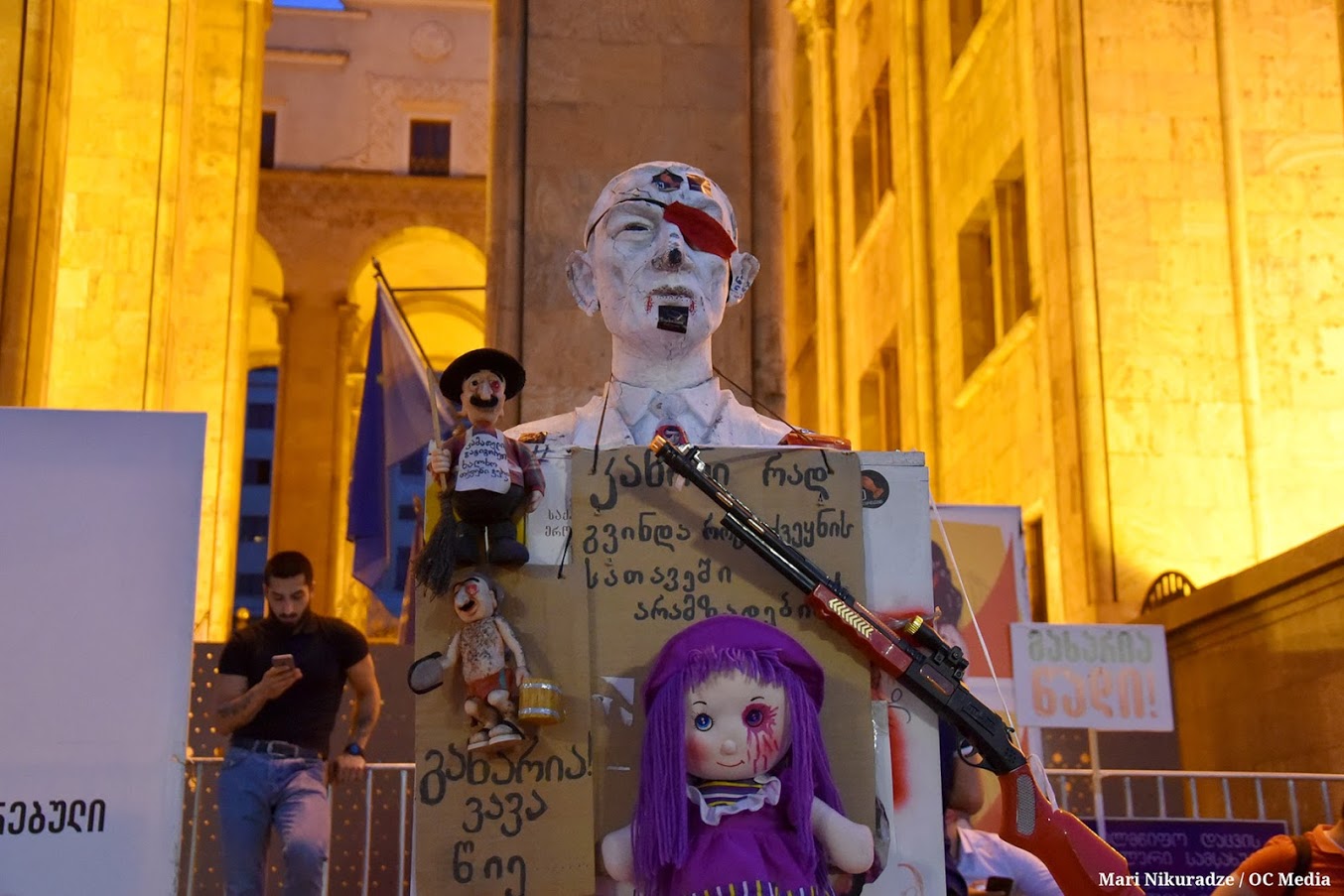
Under his premiership. in November 2019 Georgian Dream had a change of heart on their commitment to implementing highly anticipated electoral reforms, a promise that most of the opposition groups regarded as a positive outcome of the public protests over the June dispersal.
In April 2020, the Public Defender reported that according to their independent but limited probe, Gakharia did not order the use of rubber bullets in the June 2019 protests, and in fact, warned against but failed to stop their deployment and indiscriminate firing by police.
The probe, however, grew suspicions that he was not calling the shots even from his position as Interior Minister.
The Bassiani and Pankisi raids
Critics of Gakharia’s also condemned him for police raids on several popular nightclubs in Tbilisi in May 2018 and a crackdown on protests against a hydropower plant in the Pankisi Valley a year later.
While apologising for the drug raids on the Cafe Gallery and Bassiani clubs in May 2018, Gakharia, then-Interior Minister, promised drug policy reforms.
The promise was never delivered.
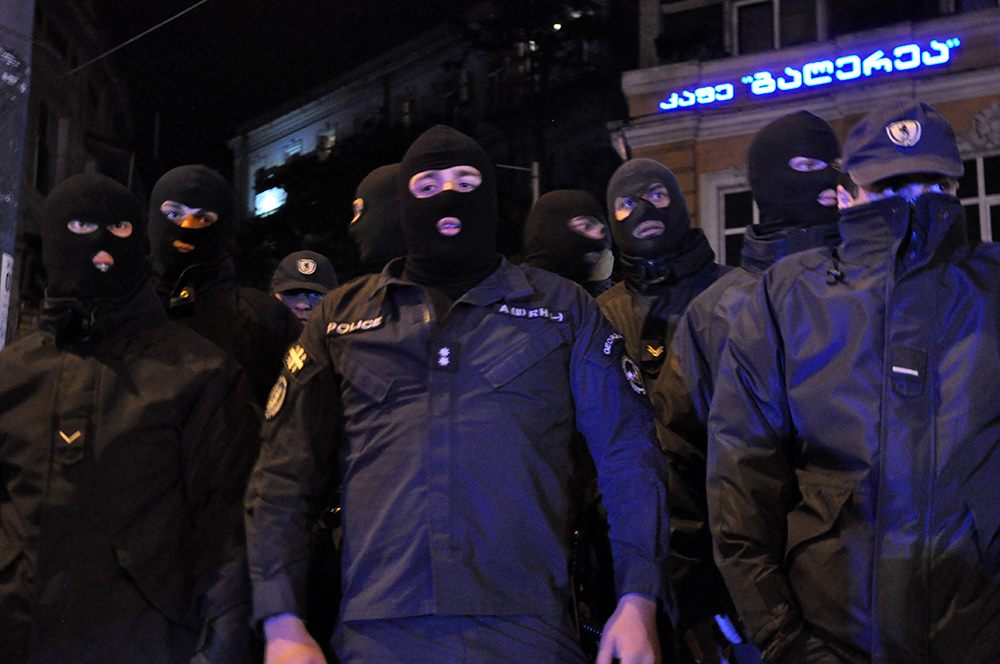
In a surprise move, the Interior Ministry instead came up in several months with a bill on cultivating and exporting cannabis, something that was shot down after fierce resistance from the Georgian Orthodox Church.
Later that year, Georgian Orthodox archbishop Iakobishvili claimed that together with other high officials, then-Interior Minister Giorgi Gakharia ‘worked on him’ to support the early retirement of Ilia II, leader of Georgian Orthodox Church.
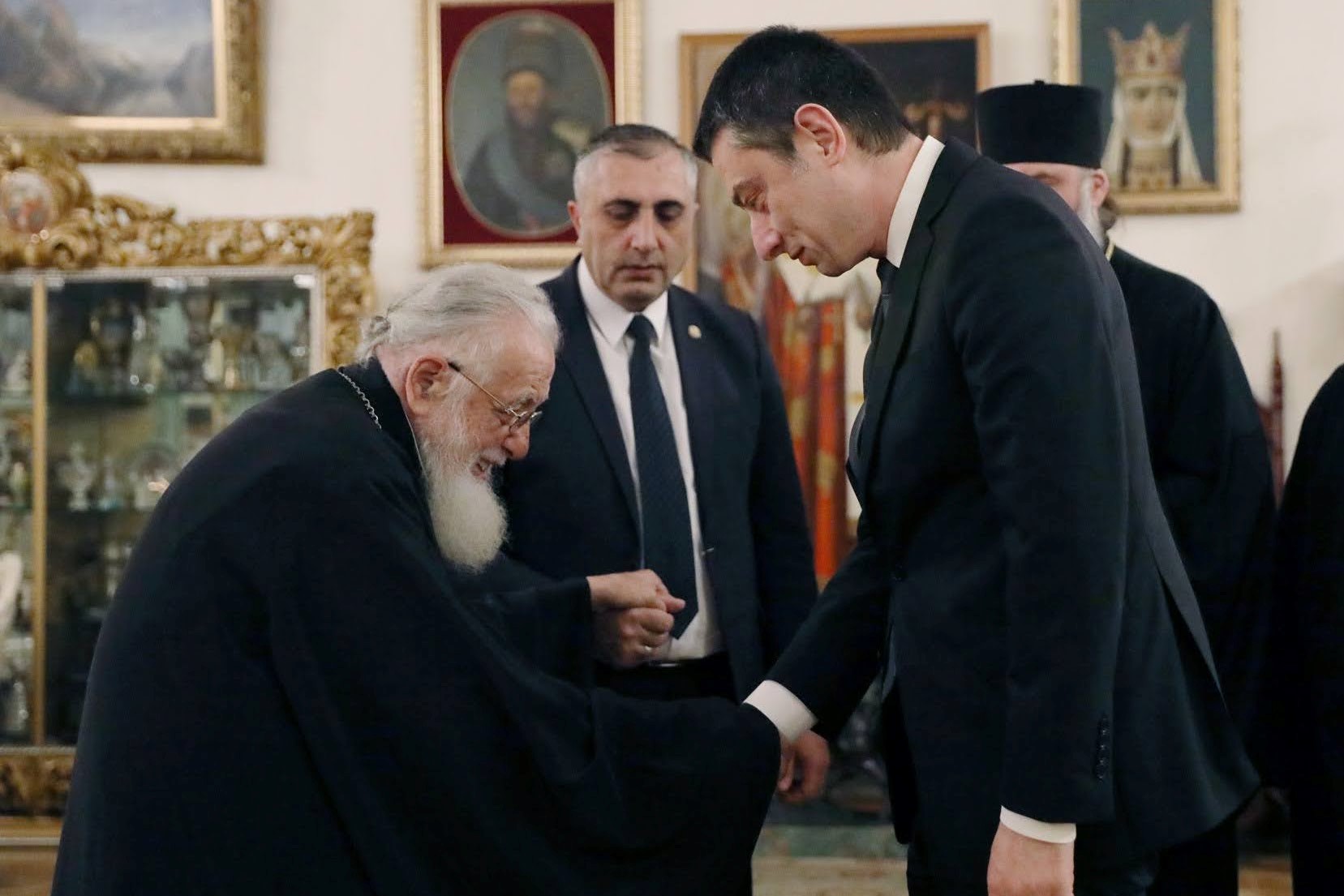
Gakharia has also been accused of making illegal moves against those on bad terms with Georgian Dream founder Bidzina Ivanishvili, including prominent Georgian bankers.
In March 2019, several months after the presidential elections, the founder of TBC bank and the current chairperson of the opposition Lelo Party Mamuka Khazaradze, accused Gakharia of threatening his reputation unless he supported the party favourite, Salome Zurabishvili.
Under his tenure as Interior Minister, the police also failed to ensure the safety of the first Tbilisi Pride event in Tbilisi. In protest against the lack of protection, the organisers staged a guerilla Pride instead, shortly demonstrating outside the Interior Ministry offices.
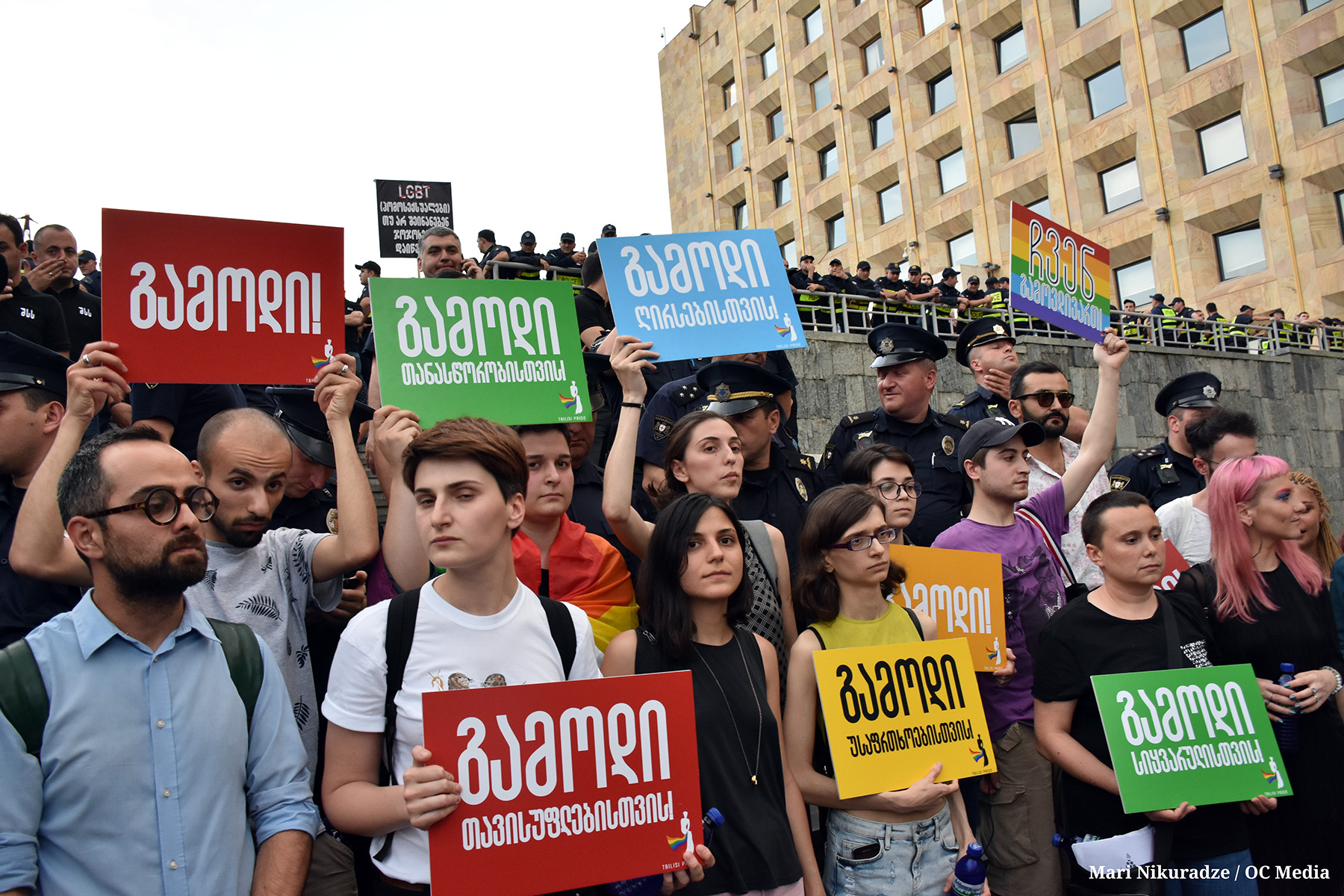
Controversial and popular
Despite widespread criticisms of his record, public polling has suggested more nuanced public attitudes towards him.
An NDI poll released weeks before his prime ministerial candidacy was fielded on 3 September 2019 showed that while 43% of Georgians surveyed found the government responsible for ‘excessive force’ used against protesters in June of that year, only 9% blamed Gakharia personally.
The government’s handling of the coronavirus pandemic has also given Gakharia a boost in popularity. In a December poll by NDI, Gakharia saw his popularity rise from 32% to 46%.
In a February poll commissioned by the Washington-based International Republican Institute (IRI), Gakharia was the most popular Georgian politician asked about.






